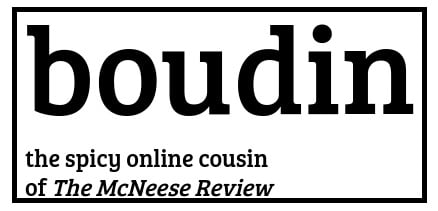More Than What They See
Cacelie Gooden
__________
“One fish, two fish, red fish, blue fish.” – Dr. Seuss
“One eye, two eyes, one girl, one guy.” – Society
For many people of color, especially Black Americans, entering a public place like a store warrants people watching you like a hawk, stereotyping you. Waiting for you to slip something into your pocket even when you have no intention of doing so. From an early age, I was told not to wear black—because in the eyes of society, black on Black is a crime.
Imagine being five years old, already aware that the color of your skin means something entirely different from your peers. When I was told not to touch anything in a store, then, it wasn’t about a price tag—it was about the assumption from others that could land Mom in a jail cell and me in the hands of CPS. We were guilty before I even picked up anything. My tiny fingers, always careful, never straying too far, always aware of watchful eyes. It wasn’t a child’s innocence that people saw, but a potential threat.
Every moment calculated. White employees behind the counter, hands trembling near the silent alarm. Hands never in my pockets, but at my side, visible, obedient. Being told I could be searched at five wasn’t just a warning; it was an eternal reminder that my body would always be seen as a threat. That warning stayed with me, a heavy, invisible chain that followed me into my late teens and early adulthood. Even now, when I walk into a store or step into a professional setting, the awareness never fades. My skin is still the first thing they see—and it’s the first thing they suspect.
It doesn’t stop in stores. In professional settings, you’re automatically “a DEI,” no matter what your credentials are. You could be elected vice president, but still, they’ll question your worth, as if your very presence is an exception, not an achievement. At school, open your mouth, and you’re “loud,” fitting into the stereotype. Stay silent, and you’re “a troublemaker waiting to erupt,” like a volcano on the edge of explosion.
It never stops.
Even among your own community, where you’re supposed to feel safe. You hide your straight A’s, terrified of being called “white-washed.” Or you hear, “I didn’t think you were smart because you know…”
What do you know?
You have to be more than great to make it. More than smart, more than capable. More and more until you break. Then, you’re a “mess”—shattered by the pressure to always be better, always be more. And when you do break, there’s no room to heal, to be whole. Only the label remains.
On social media, if another racial and/or ethnic group is facing turmoil and you don’t say anything quick enough or anything at all, you are “damaging POC unity.” But where were these people when George Floyd was murdered in cold blood or when the 17-year-old Trayvon Martin was killed and Black people were out protesting from dawn till dusk for months? It’s not the Black community’s duty to fight for others to receive nothing in return when it’s our turn to feel society’s unwanted hatred.
It’s not only damaging mentally but also stressful.
The same urgency and solidarity should apply in all moments of racial injustice, not just when it’s convenient, trending, or you feel like looting a store.
My ode to the Black community:
In every glance, there is an assumption. In every encounter, a reminder that we are seen before we are known. But we should not be the sum of what others see. We shouldn’t be confined by their gaze or their fears. We are not the sum of their surveillance; we are the sum of our own truth. And that truth, in all its depth, cannot be reduced to a moment, a glance, or a stereotype.
That is true Black history.
__________
Cacelie Gooden lives in Connecticut and is passionate about racial justice and personal storytelling. Throughout her life, she has participated in numerous equality and equity-based extracurriculars where she had opportunities to create real change and inspire others. Through her writing, she aims to raise awareness and challenge societal perceptions, offering a more nuanced perspective on issues that affect marginalized communities. She has been writing about these topics for around 10 years, and is continually inspired by the stories that shape our collective understanding of history.
__________

🢠 Back
To learn more about submitting your work to Boudin or applying to McNeese State University’s Creative Writing MFA program, please visit Submissions for details.
Posted in Black History Month and tagged in #boudin, #nonfiction, Nonficition
